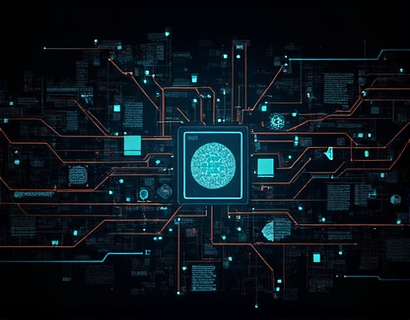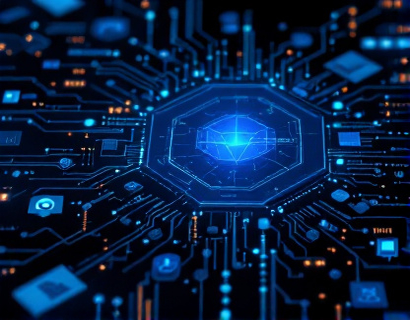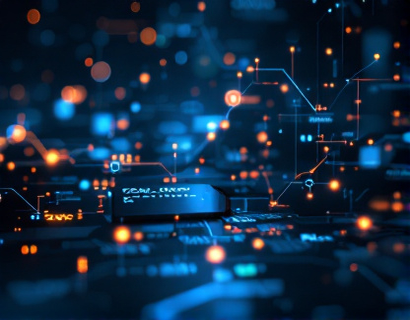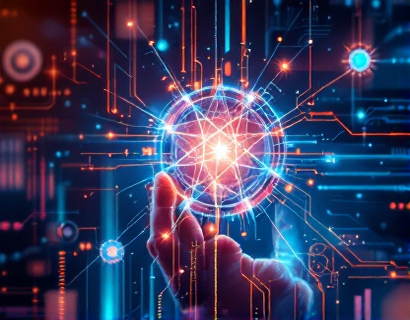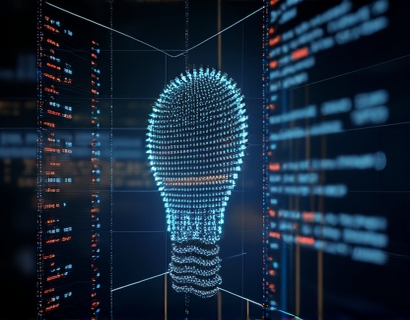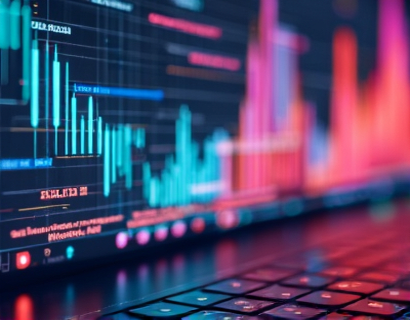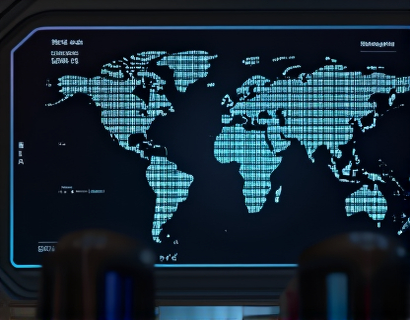Transforming Productivity in the Digital Age: The Synergy of AI and Cryptocurrency
The intersection of artificial intelligence (AI) and cryptocurrency is ushering in a new era of productivity and innovation. This transformative blend is redefining how tech innovators and early adopters approach their daily tasks and workflows. By leveraging the strengths of both technologies, individuals and organizations can achieve unprecedented levels of efficiency, security, and automation. This article delves into the ways AI and cryptocurrency are reshaping the digital landscape, offering insights and examples that highlight their potential to revolutionize productivity.
Understanding AI and Cryptocurrency
Artificial intelligence refers to the simulation of human intelligence processes by machines, particularly computer systems. These processes include learning (the acquisition of information and rules for using it), reasoning (using rules to reach approximate or definite conclusions), and self-correction. AI technologies such as machine learning, natural language processing, and computer vision are rapidly advancing, finding applications in various sectors from healthcare to finance.
Cryptocurrency, on the other hand, is a digital or virtual currency that uses cryptography for security. It operates on a decentralized network, typically a blockchain, which ensures transparency and immutability. Bitcoin, the first and most well-known cryptocurrency, paved the way for thousands of alternative coins and tokens, each with unique features and use cases. The decentralized nature of cryptocurrency offers a level of financial freedom and security that traditional banking systems cannot match.
Enhancing Productivity with AI
AI is transforming productivity by automating repetitive tasks, providing intelligent insights, and enhancing decision-making processes. For tech innovators, AI tools can streamline development workflows, optimize code, and predict potential bugs. For instance, AI-powered code completion tools can suggest code snippets and fix errors in real-time, significantly reducing development time and improving code quality.
In the realm of data analysis, AI algorithms can process and analyze vast amounts of data much faster than humans. This capability is invaluable for businesses that need to make data-driven decisions quickly. AI-driven analytics tools can identify patterns, trends, and anomalies, providing actionable insights that can drive strategic initiatives.
Cryptocurrency and Decentralized Productivity Solutions
Cryptocurrency introduces a new paradigm for productivity tools by enabling decentralized applications (dApps) and smart contracts. dApps run on blockchain networks, ensuring that they are transparent, secure, and resistant to censorship. This decentralization means that productivity tools can operate without a central authority, reducing the risk of data breaches and ensuring user privacy.
Smart contracts, self-executing contracts with the terms directly written into code, can automate various business processes. For example, a smart contract can automatically release payment to a freelancer once the delivered work is verified by the client. This not only speeds up transactions but also eliminates the need for intermediaries, reducing costs and increasing efficiency.
Integration of AI and Cryptocurrency
The true power of AI and cryptocurrency is realized when they are combined. AI can enhance the functionality and user experience of cryptocurrency-based productivity tools. For instance, AI-driven chatbots can provide users with personalized assistance, answering queries and guiding them through complex processes. These chatbots can operate on blockchain networks, ensuring that user interactions are secure and private.
Another area of integration is in the realm of digital identity and access management. AI can help create robust identity verification systems that leverage blockchain for secure and decentralized storage of identity data. This ensures that users have control over their personal information while providing businesses with a reliable way to verify identities.
Case Studies and Real-World Applications
One notable example of AI and cryptocurrency working together is in the field of supply chain management. A company can use AI to predict demand and optimize inventory levels, while blockchain ensures transparency and traceability throughout the supply chain. Smart contracts can automate payments to suppliers based on predefined conditions, such as the successful delivery of goods. This combination reduces delays, minimizes fraud, and enhances overall efficiency.
In the creative industry, AI-powered tools can assist artists and designers in generating ideas and creating content. For instance, AI algorithms can analyze trends and suggest design elements that are likely to resonate with audiences. Coupled with cryptocurrency, these tools can be monetized through tokenized platforms, allowing creators to sell their work directly to fans and collectors, bypassing traditional intermediaries.
Challenges and Considerations
While the potential of AI and cryptocurrency in enhancing productivity is vast, there are challenges that need to be addressed. One significant concern is the regulatory environment. Cryptocurrency is still a relatively new and unregulated space in many jurisdictions, which can pose legal risks for businesses and individuals. AI, while powerful, also raises ethical concerns, particularly around data privacy and bias in algorithms.
Another challenge is the technical complexity involved in integrating AI and cryptocurrency solutions. Developers and businesses need to have a solid understanding of both technologies to implement them effectively. Education and training are essential to bridge this knowledge gap and ensure that the benefits of these technologies can be fully realized.
Future Outlook
The future of AI and cryptocurrency in productivity is bright, with ongoing advancements promising even more innovative solutions. As AI algorithms become more sophisticated, they will continue to find new ways to augment human capabilities. Cryptocurrency, with its decentralized and secure nature, will likely play a crucial role in the development of trustless and autonomous systems.
The convergence of these technologies will lead to the creation of smart workplaces where tasks are automated, data is secure, and decisions are informed by real-time insights. For tech innovators and early adopters, embracing AI and cryptocurrency can provide a competitive edge, enabling them to stay ahead in a rapidly evolving digital landscape.
In conclusion, the synergy between AI and cryptocurrency is transforming productivity in profound ways. By automating tasks, enhancing security, and providing decentralized solutions, these technologies are reshaping the way we work and interact in the digital world. As the adoption of these technologies grows, the potential for innovation and efficiency gains will continue to expand, offering exciting opportunities for those who dare to explore.










